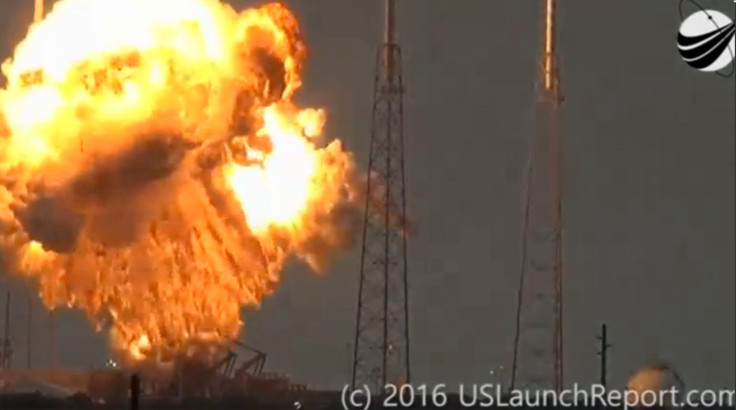SpaceX Falcon 9 Explosion Fallout: Israel’s Spacecom Says It May Seek $50M Compensation For Lost Satellite

Space Communications Ltd. — the Israeli company whose AMOS-6 satellite was on board the ill-fated Falcon 9 rocket that exploded at a Florida launch site Thursday — is seeking compensation from SpaceX for its loss. According to Reuters, the company may either seek $50 million or a free flight from SpaceX.
“The rocket launcher belongs to SpaceX and they are responsible for all that happens to it, including fueling,” Spacecom CEO David Pollack told Haaretz. “I assume it will take time until we discover exactly what happened here, but as I know SpaceX, they have so many sensors and cameras that the examination will be relatively quick — a few days.”
The AMOS-6 satellite, which reportedly cost the company nearly $200 million, was to be used to expand internet access in sub-Saharan Africa. Its loss has also imperiled Spacecom’s planned merger with Beijing Xinwei Technology Group, although officials from both the companies are yet to comment on how it would impact the deal.
“We hope to continue fruitful communications with the prospective buyer,” Gil Lotan, Spacecom's general counsel, said in a conference call with reporters, adding that it was too soon to speculate whether the merger would proceed as planned.
SpaceX, meanwhile, has already launched an investigation to determine what caused the mishap. In an update released Friday, the company said NASA and the U.S. Air Force are participating in the investigation that is also being overseen by the Federal Aviation Administration.
However, it is yet to provide any additional information about the “anomaly” that caused the explosion, other than the fact that it originated around the upper stage oxygen tank and occurred during fueling of the launch vehicle.
“We deeply regret the loss of AMOS-6, and safely and reliably returning to flight to meet the demands of our customers is our chief priority,” the company, which, prior to Thursday’s incident, had a more or less solid safety record, said. “SpaceX's business is robust, with approximately 70 missions on our manifest worth over $10 billion.”
Over the past two years, SpaceX has been actively testing its flagship Falcon 9 rockets equipped with technology that allows them to be recovered and reused. So far, the company has succeeded in landing the lower stages of six of its Falcon 9 rockets, including four that have been landed on drone barges at sea.
Just two days prior to last week’s explosion, SpaceX had signed its first customer for a previously used Falcon 9 rocket — the Luxembourg-based satellite operator SES, which is scheduled to launch its SES-10 satellite in the fourth quarter of 2016.
“No doubt SpaceX will fix the problems, but if you’re a customer time is money,” Scott Pace, director of the Space Policy Institute at George Washington University and a former NASA administrator, told the New York Times. “This will get customers looking at alternatives. It may give competitors an opening and slow down SpaceX.”
© Copyright IBTimes 2024. All rights reserved.





















